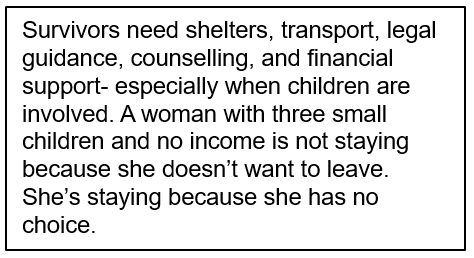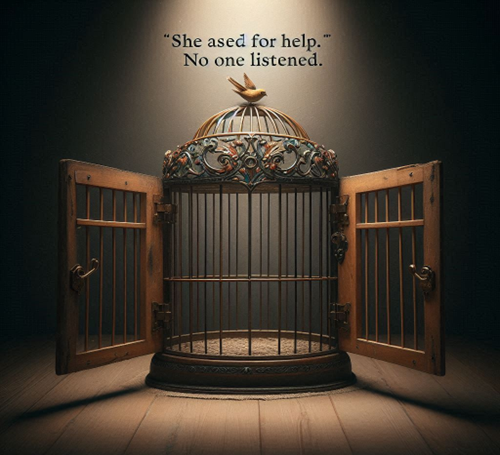Why the silence, systems, and survival prevent reporting is the question.

The question was: “Why was she silent?”
“Why didn’t the child tell someone?”
People ask these questions—rarely with compassion, often with judgment. But the question should be is this:
Did the world make it safe for them to speak?
Too often, the answer is no.
Silence as Survival
Women and children don’t report abuse simply because they cannot.
In Zimbabwe, I’ve met women who stayed in violent relationships because they had nowhere to go. They were raising children, financially dependent, and trapped not only by poverty but by shame. I’ve also seen families discourage their children from disclosing abuse—not because they didn’t believe them, but because they couldn’t afford to act on it.
In these realities, silence is not weakness.
It is a strategy.
It is protection.
It is survival.
Laws Are Not Enough
Yes, legislation matters. But it’s not the complete answer. If there’s no funding, no training, no follow-through—then the law is little more than a promise.
We need systems that work when a child whispers their truth, when a woman risks everything to speak.
Frontline workers—police officers, teachers, health staff, social workers—must be trained to listen without judgment and act without delay. They need to understand trauma. They need to know what safety really looks like.
Because too often, the response is minimisation:
“It’s a family matter.”
“She’s exaggerating.”
“The child will forget.”
“There’s not enough evidence.”
Awareness Is More Than a Poster on the Wall
I once worked with a drama group that didn’t perform in theatres. They told their stories in car parks, markets, and schoolyards. One of their plays focused on the sexual abuse of a child—and they performed it without warning, right in the middle of the community.
People gathered. Curiosity struck some. Some uncomfortable. Some emotional.
And always—always—someone came forward.
Someone who had never told their story.
Someone who had kept a secret, sometimes for decades.
We always had counsellors on hand. We didn’t perform without support. Revealing the truth stirs what’s been buried.
True awareness looks like this accessible, raw, public, and supported.
Safe Houses, Not Just Safe Words
You cannot ask someone to leave if you don’t give them somewhere to go.

When support systems don’t exist, people return to danger—not because they want to, but because they have to.
What Makes Reporting Possible
We must stop asking why survivors don’t report and start asking what would make them feel safe enough to do so.
Here are some answers:
- Laws with funding, teeth, and trained enforcers.
- Safe and confidential spaces for disclosure.
- Frontline workers who understand trauma.
- Public education that makes silence harder and truth easier.
- Support systems that don’t vanish after the first report.
Because They Deserve a System Worth Speaking To
We want women and children to come forward. We ask them to be brave. But courage alone isn’t enough. We must build the systems that earn their trust.

Until then, many will stay silent.
Not because they want to.
But because we made it the safest thing to do.